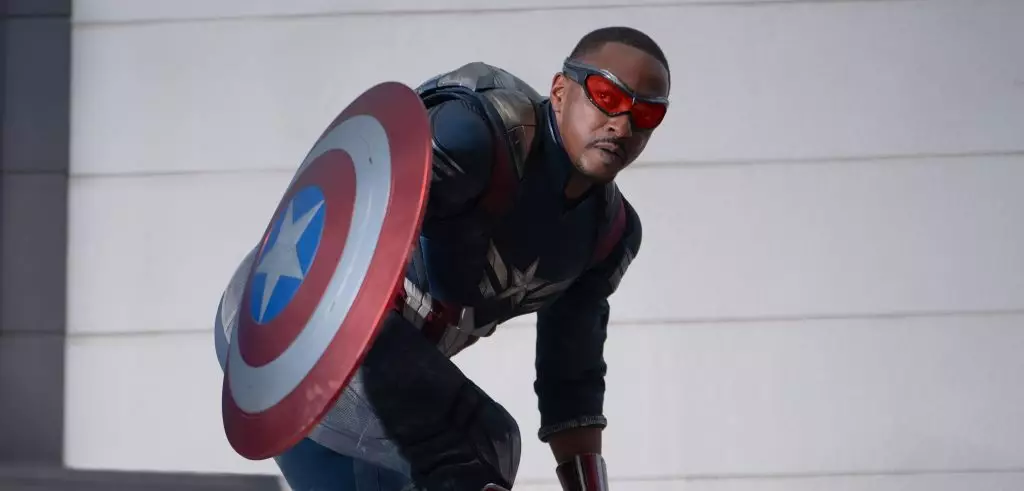Despite inclement weather spanning from the sunny shores of Los Angeles to the snow-covered streets of the Northeast, moviegoers are trudging to theaters for the much-anticipated release of Disney’s “Captain America: Brave New World.” The film, featuring the courageous Anthony Mackie as the titular hero, has drawn a relatively strong $12 million in previews, highlighting audiences’ willingness to engage with new cinematic offerings from the Marvel Cinematic Universe (MCU). This figure suggests a promising start for a film that is deeply rooted in the expansive MCU narrative, branching from both the popular Disney+ series “Falcon and the Winter Soldier” and the foundational “The Incredible Hulk” that set the stage for this franchise over a decade ago.
When scrutinizing the numbers, “Brave New World” emerges as an interesting case study. Its $12 million progress through previews boasts a commendable figure, surpassing the $10.2 million earned by 2014’s “Captain America: The Winter Soldier.” This film ultimately launched to a robust $95 million during its debut weekend. However, while “Brave New World” manages to position itself well against its predecessors, it markedly falls short of the $17.5 million brought in by “Ant-Man and the Wasp: Quantumania,” which ultimately grossed $106.1 million over the same Presidents Day weekend in 2023. Current estimates suggest a more modest trajectory for “Brave New World,” with projections of $80 million for its opening weekend, indicating a potential decline from earlier MCU entries.
Strikingly, while box office numbers appear favorable, the film’s critical reception presents stark contrasts. Rotten Tomatoes assigns a lackluster 52% critics score, signifying that many reviewers found less to celebrate in this latest chapter of the superhero saga. In contrast, audience ratings show a more robust response, sitting at an 82% approval. This discrepancy poses an intriguing question: are the critics out of touch with the franchise’s dedicated fanbase, or does the film’s tone shift reflect a growing discontent among viewers? Social media analytics from RelishMix offer further insight into this dynamic, revealing that engagement levels for “Brave New World” are approximately 21% below genre benchmarks across major platforms, signaling a constrained buzz compared to its competitors.
Audience sentiments on social platforms are decidedly mixed, revealing fierce debates about the direction of the MCU and the character arcs within “Brave New World.” While many fans express excitement over Anthony Mackie assuming the Captain America mantle, with the tantalizing addition of the formidable Red Hulk character, conversations are simmering with skepticism. Some viewers articulate concerns that “Brave New World” embodies a haphazard effort from the studio, encapsulated in comments like, “I want the film to succeed, but I can’t shake the feeling this movie is just being sent out there to die.” The tonal shifts—between intense espionage narratives reflecting “Winter Soldier” and more tongue-in-cheek elements—have drawn their own criticisms. The addition of Sabra, a character tied to Israel, has sparked dialogues that intertwine the fictional with the geopolitical, further complicating audience reactions.
As “Captain America: Brave New World” gears up for its broader release, the MCU finds itself at a crossroads. Fan excitement and industrious expectations clash with uncertain critical reviews, suggesting that Marvel’s traditional formula may warrant reassessment. The dynamic range of audience feedback signals that while interest in superhero narratives remains, fan expectations for depth and cohesive storytelling are higher than ever. As the film unfolds, it will be crucial to observe whether it can solidify its place within the MCU or contribute to an ongoing dialogue about the future of superhero cinema. The outcome of this cinematic venture will undoubtedly shape future projects and inform how Marvel navigates this complex landscape moving forward.

